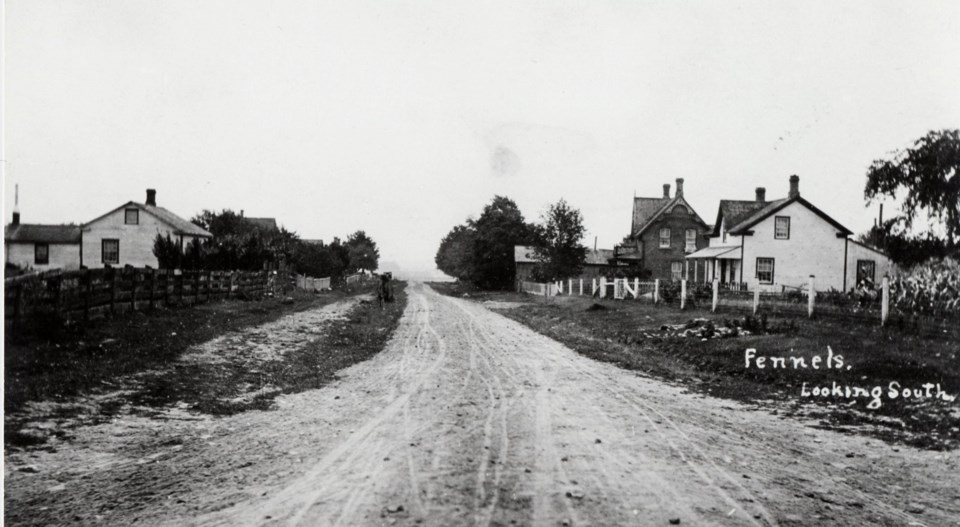Postcard Memories is a series of historic views, stories, and photos of Innisfil and the area, a trip down memory lane on a Saturday morning.
This is the story of Croxon’s Corners. Never heard of it? Pull up a chair.
The hamlet of Croxon’s Corners was centered upon the intersection of two busy roads – what is today Yonge Street and Highway 89. Henry Croxon established a hotel on the southeast corner of the intersection that for almost a century formed the heart of the community. Croxon’s Hotel became even more important when, in 1870, a post office was established within its walls.
All-day long, wagons and stages rattled through Croxon’s Corners. Inevitably, horses needed shoeing and wagon wheels needed repair. George Peacock filled the community’s need of a blacksmith, opening shop in 1867.
In addition, the hamlet was served by a second hotel run by Edward Brown, a store, Orange Hall, and the Zion Primitive Methodist Church.
Croxon’s Corners, as you might already have guessed, eventually became Fennell’s Corners. The name was changed in 1896 to honour the recently deceased Joseph Fennell, a member of the first West Gwillimbury Council, a Reeve and constable, and a farmer held in high regard by his peers.
About this time, the village began a slow but steady decline. Both hotels ceased operation during the first decade of the 20th century. George Peacock had died in 1908, but his blacksmith shop continued for two more decades under a succession of other smiths.
This view is of the corners looking south, basically standing in the middle of the intersection. It’s interesting to note that all three buildings pictured still stand, including the Brown hotel at right, where early council meetings of West Gwillimbury Township met.



